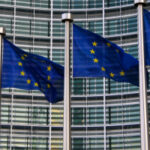On 2 July, the Commission is expected to publish a Communication on corporate social responsibility. The proposal is likely to focus on how the EU can promote best practice, code of conducts and social labels.
Background:
In July 2001, the European Commission issued a Green Paper on a European framework for corporate social responsibility (CSR). The aim was to launch a wide debate among the stakeholders. For an overview of some of the responses from various stakeholders, see "Forces@Work".
Issues:
On 27 June, the Commission issued a background memo on CSR, leading up to the adoption of the actual Communication next week. I seems that the Communication, which is a follow-up of the Green Paper, will discuss the issue on how the EU can bring added value to the CSR debate, without interfering with already well established policies on international level. The EU supports international standards such as the ILO’s fundamental rights and the OECD’s guidelines for multinational enterprises.
The Commission proposes that the EU’s main contributions on CSR could be:
To develop an overall European reference framework: This umbrella should establish broad principles, approaches and tools.
To define and promote best practice: This should especially include approaches to evaluation and verification of CSR activities, to encourage a common, solid and independent accountability standards.
The Communication will not propose legal obligations in the field of CSR. The Commission points out that CSR by definition is about companies taking action beyond their legal obligations. However, the Communication will suggest some action plans on how to promote best practice and move towards one agreed social accountability standard.
Positions:
Industry has in general been calling for a voluntary approach to CSR. In a letter to Commissioner Prodi, CSR Europe, together with ERT and UNICE, wrote: "Companies’ CSR initiatives must be developed from within the organisation, responding to the concrete situation in which each company finds itself. Development of a CSR policy is a dynamic process, influenced by market conditions, the local setting, national legal frameworks, cultural and historical aspects, etc. An approach advocating a European CSR model based on ‘European values’, with standardised approaches, specific certification procedures or specific reporting requirements does not correspond to the real challenges facing business in a global context."
NGOs such as Solidar, have called for a standardised reporting system with certified verification. They have also emphasised that the EU should first focus on compliance with existing social and labour laws, before encouraging additional voluntary actions.
The European Parliament’s opinion calls on mandatory rules for companies to supply information on the social and environmental impact of their operations.
Next steps:
The Commission’s adoption of the Communication is expected on 2 July.



